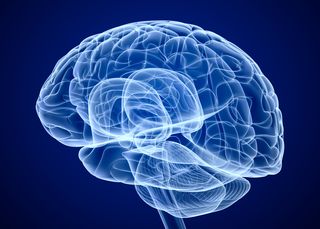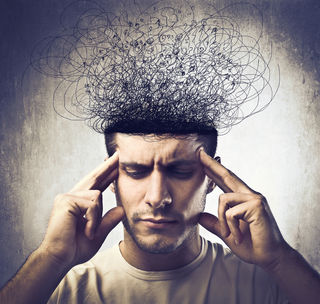Addiction
Neuroscience Suggests That We're All "Wired" for Addiction
The brain mechanics of attentional bias suggest anybody can become an addict.
Posted August 26, 2016

A cognitive neuroscientist from the psychology department of Texas A&M University, Brian Anderson has a radical new theory on the commonality of addiction. Anderson’s research suggests that drug addicts and nonaddicts have much more in common at a cognitive and neurobiological level than previously believed. Anderson’s latest research suggests that addiction is an egalitarian disorder, that does not discriminate.
Contrary to popular belief, Anderson has found that even those without a history of addiction can quickly develop attentional biases that mimic addictive behavior. After undergoing classical conditioning between stimuli and a drug-free reward, participants who identified as nonaddicts responded to cues in ways that would equate to relapse for a drug addict. To some degree, everyone’s brain appears to be “wired” for addiction—and we all have the capacity to become an addict.
The August 2016 study, "What Is Abnormal About Addiction-Related Attentional Biases?" appears in the journal Drug and Alcohol Dependence. In this article, Professor Anderson argues that healthy nonaddicts from all walks of life show the same proclivity for attentional bias as people who are addicted to drugs.
Through habituation, drug cues become hardwired to capture the attention of those who have become drug-dependent. However, the broader population also appears highly susceptible to being conditioned to have very strong responses to hardwired "addictive" reward cues in response to reinforced stimuli.
Of course, some substances are so physiologically addictive that their psychologically addictive potential becomes secondary, as we've seen with the recent epidemic of opioid-based painkiller abuse and heroin addiction.

Along these lines, another new study from Brown and Yale universities (published this week) found that veterans who misused painkillers were statistically prone to begin using heroin. After analyzing the data of 3,400 veterans over ten years and compensating for other risks—such as income, race, use of other drugs, and PTSD or depression—the researchers concluded that veterans who misused painkillers were 5.4 times more inclined to become heroin users.
What Triggers Cravings That Lead to Addictive Behavior?
A May 2015 study on cravings found that “person-specific cues” (which are unique to every individual) have an acute effect on triggering cravings for any addictive substance or behavior that has been linked to reward. Person-specific cues include such things as spending time with friends who use your substance of choice, revisiting a place linked to using the drug, smells, hearing a song that reminds you of a time and place linked to substance abuse, etc.
The researchers found that person-specific cues have a longer and stronger effect on the duration of cravings than “substance-specific cues," which include things such as being in the presence of bottles, pipes, syringes, lighters, or other paraphernalia used to do drugs or consume alcohol.
The latest findings by Anderson suggest that any type of attentional bias is rooted in a similar cognitive process—whether it's drugs, alcohol, or simply something technically nonaddictive that has been linked to a reward in the pleasure centers of your brain. Gambling is a perfect example of a drug-free behavior that can be hardwired to become addictive through conditioning.
This new research suggests that addiction-related attentional biases aren't a unique consequence of substance abuse, nor are addiction-related attentional biases the result of a process that is, in and of itself, pathological.
Even when an addict has made abstinence his or her primary goal, efforts to stay clean are often derailed. Anderson found that the inability to ignore specific stimuli associated with someone's drug of choice often triggers cravings, which cause a relapse for people who struggle with drug addiction and are trying to stay sober.
Drug-related stimuli have the ability to hijack reward-driven neural mechanisms, which often leads to poor decision making and falling off the wagon. More importantly, this process appears to be a double whammy of attentional bias and addiction combined. Anderson says that one of the strongest markers for addiction is the attentional bias for a drug affiliated with its stimuli and cues. In a statement he said,
Attentional bias is a tendency to direct your attention to something even when it conflicts with your goals, making it difficult to ignore. A drug cue is something that serves as a predictive cue for the experience of the drug. An example would be a syringe in the case of an injectable drug or a bong in the case of a drug that is inhaled.
Reward-Driven External Stimuli Can Trigger Cravings and Addictive Behavior
I wrote about the neuroscience of conditioned triggers and cues in a May 2016 Psychology Today blog post, "This Is Your Brain Bingeing on Food, Sex, Alcohol, or Drugs." This post was based on research from Johns Hopkins University which found that rats could be conditioned to engage in binge behaviors if external cues were linked to receiving a sugary treat.
In the first stage of this study, the Hopkins researchers trained rats to learn that if they heard a certain sound (a siren or staccato beeps) and then pushed a lever they would receive a drink of sugar water. This is classical conditioning in action. As the rats performed the task repeatedly, the researchers were monitoring neurons within the ventral pallidum (VP) area of the rats' brain.
The researchers observed that when a rat heard the cue linked to his or her sugary treat, a much larger-than-expected number of neurons in the VP reacted. This response led to robust, binge-like addictive behaviors.
In a statement, Jocelyn M. Richard, a Johns Hopkins University postdoctoral fellow in psychological and brain sciences, and lead author of this study said,
External cues—anything from a glimpse of powder that looks like cocaine or the jingle of an ice cream truck—can trigger a relapse or binge eating. Our findings show where in the brain this connection between environmental stimuli and the seeking of food or drugs is occurring. We were surprised to see such a high number of neurons showing such a big increase in activity as soon as the sound played.
The latest research on attentional bias from Texas A&M dovetails with Richard's previous findings. By combining behavior analysis with neuroimaging techniques, Anderson has been able to deconstruct the neural mechanisms through which reward learning affects both our attention and subsequent behavior.
Anderson hypothesizes that when someone becomes addicted to a substance, the myriad stimuli associated with that substance have the powerful ability to monopolize the attention of that individual. This drives behavior in a way that a friend of mine (who was addicted to crystal meth) once described by saying, "Once the switch is triggered, I can't get the idea of using out of my head. It becomes like an itch that I have to scratch."
Attentional Bias Drives Addictive Behavior for Addicts and Non-Addicts Alike

To investigate his attentional bias theory, Anderson pioneered a novel approach for studying addiction. He arbitrarily paired a reward and a stimulus in a training procedure that later appears as a "task-irrelevant distractor" during the performance of a subsequent goal-oriented task. Then, he examined how these hardwired reward-associated stimuli were processed by people without a history of addiction and in individuals who struggle with addiction and other psychopathologies.
"The ability to ignore these previously reward-associated objects is assessed under a variety of conditions," Anderson said. "This suggests that these seemingly 'pathological features' of addiction may, in fact, reflect a normal cognitive process—that we are all to some degree 'wired' to become addicted.”
Anderson has discovered that reward-associated objects that didn’t have anything to do with drugs drew attention and influenced behavior in the same way that drug cues do in drug-addicted patients. As Anderson explains,
"The attentional biases were evident even when they conflicted with current goals, they lasted a long time, they were mediated by many of the same brain regions, and they facilitated action towards the stimulus.
Drug-addicted patients also showed stronger attentional biases for nondrug reward cues, suggesting that a more general sensitivity to a reward's influence on attention may play a role in addictive behaviors."
Based on this evidence, it appears that we all have addiction-like tendencies that are influenced by reward learning in ways that are sometimes beyond our locus of control. These findings suggest that attentional biases for drug cues reflect a normal cognitive process through which humans are wired to automatically direct our attention to learned predictors of reward.
"Personally, I find that humbling," Anderson concluded. "I think this is important to keep in mind when we try to make sense of why we and others we know do the things we do. Where we look and what we pursue are not always a reflection of our current conscious intentions. Rather, automatic biases are a normal part of life that we need to either consciously work against or replace with healthier habits when the ones we have led to bad outcomes."
Conclusion: Treating Addiction Requires a Multi-Pronged Approach
Previous research has established that person-specific cues that are linked to the experience of consuming alcohol or drugs—such as people, places, emotional events, and moods—are the most common triggers for relapse. Statistically, the odds of successful treatment for addiction can be discouraging. Hopefully, the latest findings on the brain mechanics of addiction by the likes of Brian Anderson and Jocelyn Richard will lead to more effective interventions.
In closing, Anderson reiterated that when seeking treatments for addiction, "the information-processing biases that we know to be important for addiction are not a unique consequence of drug use, and curbing drug use itself will not necessarily curb the 'pull' from tempting situations that can trigger relapse. In order to treat addiction, we have to curb a normal cognitive process."
To read more on this topic, check out my Psychology Today blog posts,
- "What Triggers Cravings?"
- "The Neuroscience of Pleasure and Addiction"
- "This Is Your Brain Bingeing on Food, Sex, Alchohol, or Drugs"
- "The Neuroscience of Binge Drinking"
- "Heroin Addiction Is Destroying the Lives of Young Americans"
- "Long-Term Marijuana Dependence Linked to Problems at Midlife"
© 2016 Christopher Bergland. All rights reserved.
Follow me on Twitter @ckbergland for updates on The Athlete’s Way blog posts.
The Athlete's Way ® is a registered trademark of Christopher Bergland.




